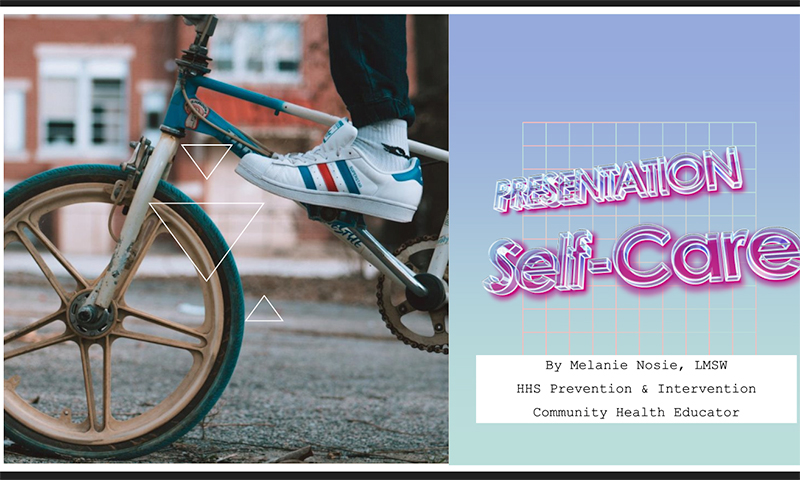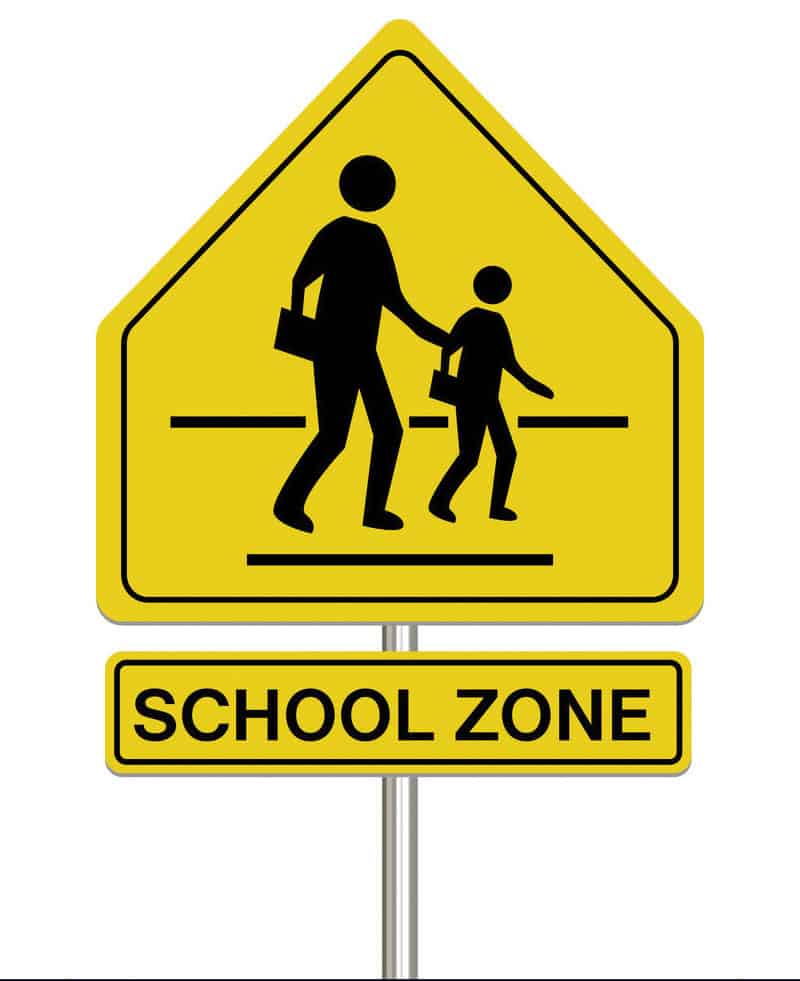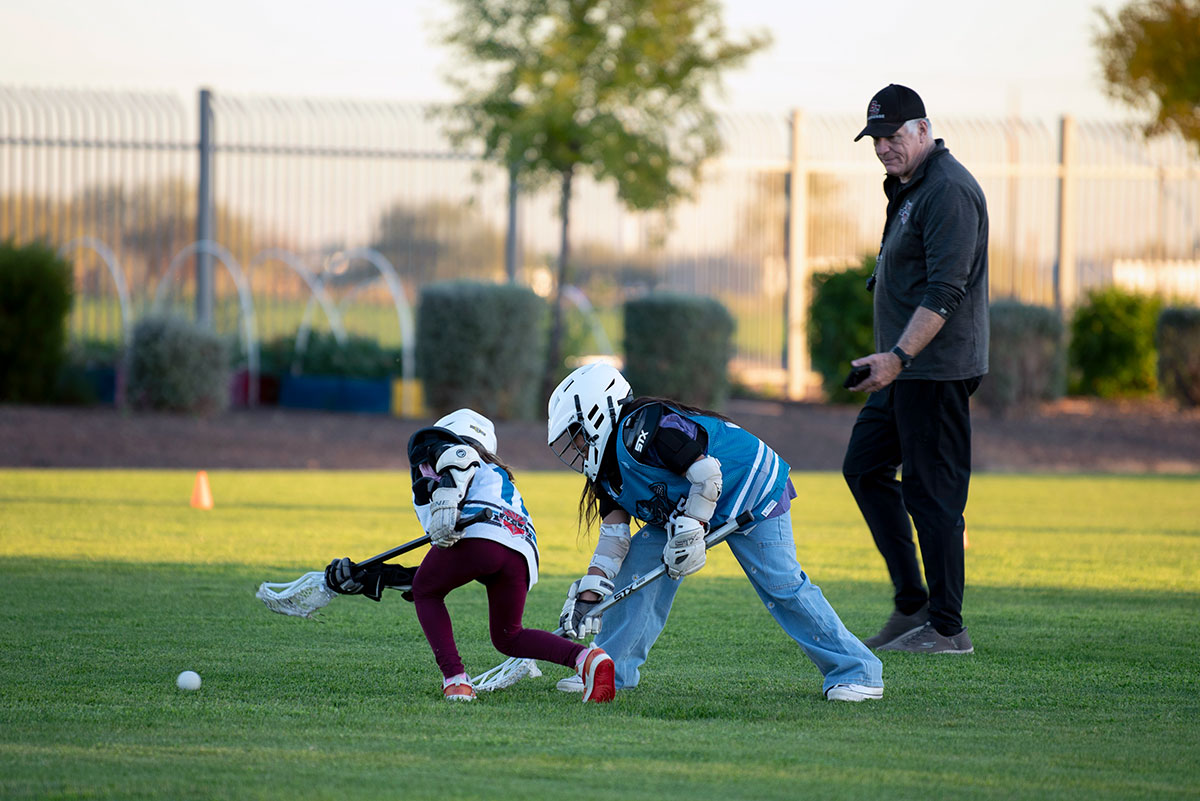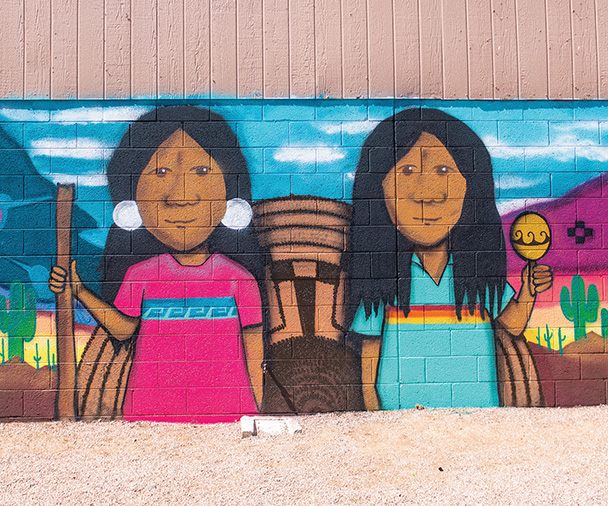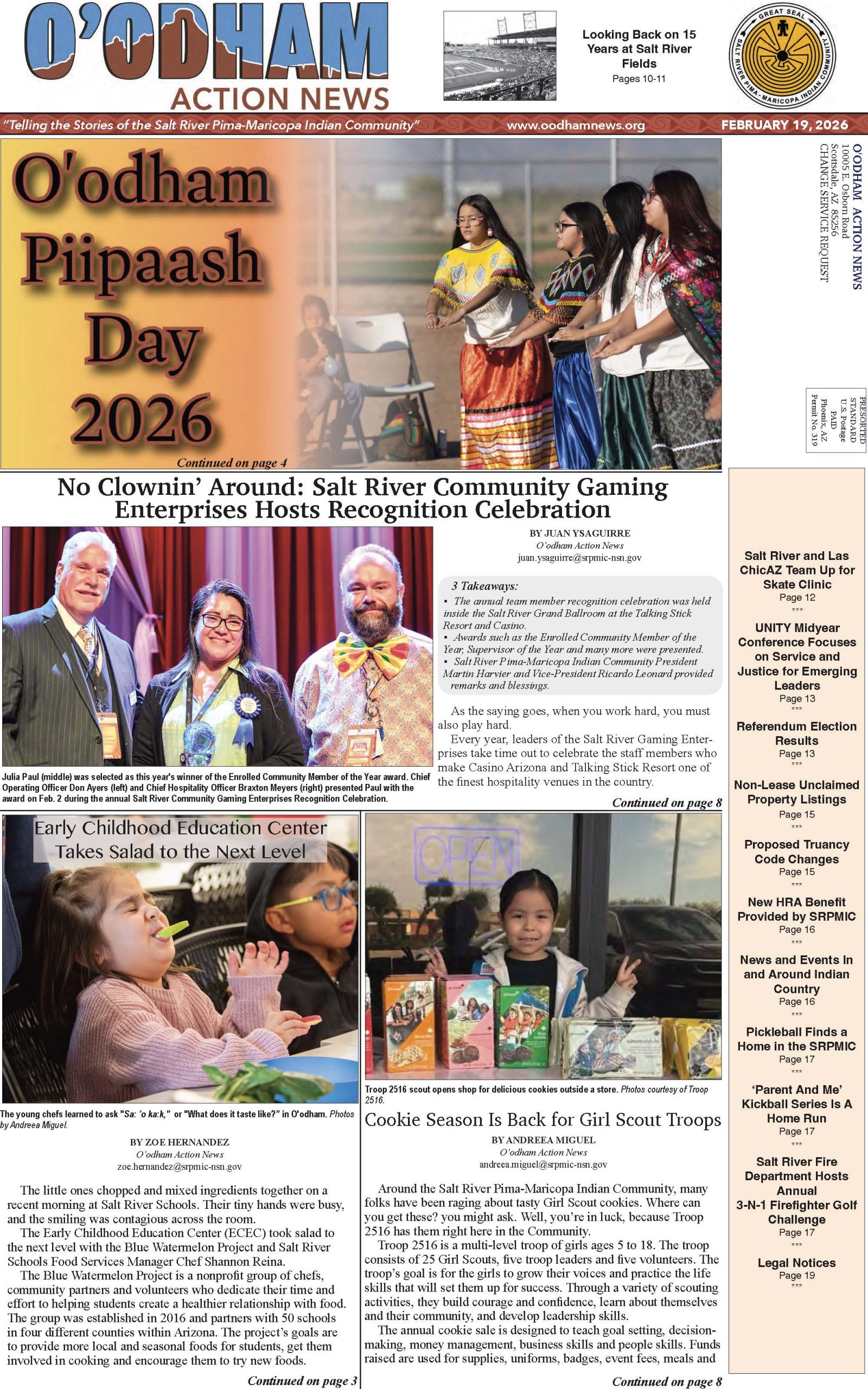VIEWS: 1113
December 15, 2024SRPMIC Hosts Important Webinar on Self-Care
“How do you take care of yourselves?”
On November 6, Melanie Nosie, LMSW, Salt River Pima-Maricopa Indian Community health educator, began her webinar presentation on self-care by asking the group of nearly 100 guests that simple question.
The answers slowly started coming in: being outdoors, taking a nap, crafting, working out, painting nails, shopping, bible study, hiking, playing videogames and listening to music.
“Self-care means different things to a lot of people,” said Nosie. “We are all different. We have a lot of different hats we wear. Some of us are parents, grandparents, friends and more. Sometimes we find ourselves giving and giving, which then leads to burnout. We want to avoid that.”
The webinar was a presentation of SRPMIC Health and Human Services through Microsoft Teams.
Nosie continued, “We are our own worst critic. Sometimes we get down in the dumps, and that’s okay—we have to practice staying positive when things get challenging. We want to pay attention to how we think and how we are treating ourselves. Creating a healthy inner dialogue is very important.”
Additionally, Nosie shared the three main components of self-care: caring for yourself first, implementing action and staying consistent.
Putting yourself first means ensuring your physical and emotional needs are met. Nosie warned against putting yourself second to family and friends due to the negative impacts it has on our overall well-being. “A lot of people, me included, we put ourselves last and place our kids or spouses first. That contributes to our burnout and we’re not able to make the right decisions when it comes to taking care of ourselves.”
Though it may be challenging at first, Nosie strongly suggested ensuring our emotional, spiritual, mental, social and physical needs are met. “We need a break. We want to get comfortable saying ‘no.’ [We find it difficult to say] to someone, ‘I want to help you, but I’m taking some time for myself today.’ That’s hard to do because we’re loyal to our family, friends and jobs. But sometimes we have to take that pause.”
Nosie explained that when people continually put themselves second, eventually they become frustrated and may not truly understand why. “Everything that goes on in our brains is what we feel,” said Nosie. She added, “Take vacations to take care of yourself. We want to get comfortable creating that routine and being okay with being alone with our thoughts.”
Nosie shared with the group that one in every five people suffers from a form of mental illness. “When we stay in a slump and stay stuck there and don’t do anything and feel like everything is too much—that is depression, quite frankly,” she said.
Toward the end of the presentation, Nosie provided the group with helpful methods to improve an individual’s mental health. “Assess your needs, consider your stressors, devise self-care strategies, plan for challenges, take small steps, and schedule time to focus on your needs,” she said. “When we put ourselves first, we put our physical and emotional needs first.”
She added, “So go on your hikes, read books, go shopping, paint your nails. Do it all. When we take care of ourselves and hit the reset button, we perform better in all areas.”
For information on upcoming HHS webinars, contact Community Health Educator Melanie Nosie, LMSW, at (480) 362-6678. Dates and times are subject to change.

